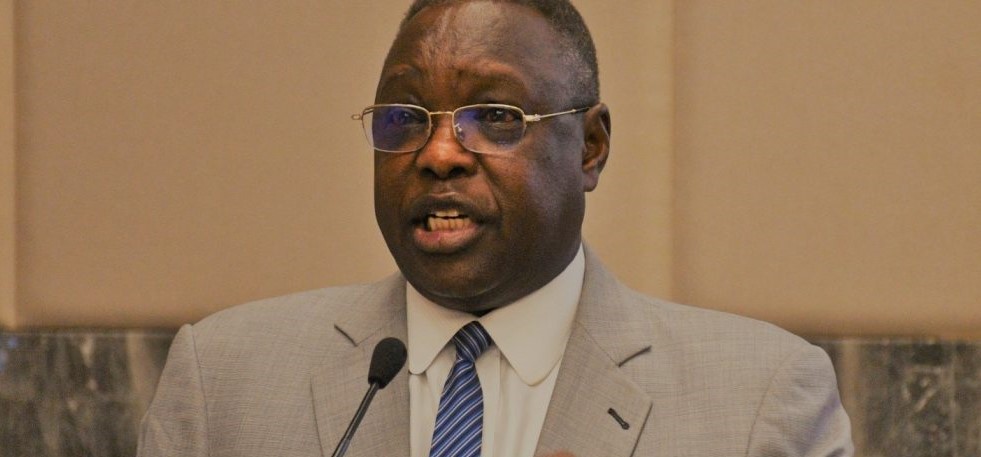South Sudan’s cabinet will resume weekly meetings next week, a minister announced Tuesday, ending an eight-month paralysis that had stalled national business, including the passage of a national budget.
Cabinet Affairs Minister Martin Elia Lomuro said the hiatus was due to renovations to the main cabinet chamber, denying that it was linked to political tensions following the arrest of First Vice President Riek Machar.
The Council of Ministers, the government’s top executive body, last met in March. Its regular Friday meetings, traditionally chaired by President Salva Kiir or Machar, have been on hold since.
“The fact that the cabinet has not been sitting is not related to the case which is going on,” Lomuro said, referring to Machar’s detention. “It is just that we are renovating and improving the cabinet to make it an electronic cabinet.”
He made the announcement during an extraordinary meeting of the Reconstituted Joint Monitoring and Evaluation Commission (RJMEC), the body overseeing South Sudan’s peace process.
“Within next week, we are going to commence sitting even if we sit in a temporary hall somewhere within the government premises,” Lomuro said.
The prolonged halt to cabinet operations had raised concerns among observers and governance experts about a breakdown in governance in South Sudan.
A key consequence has been the failure of the unity government to pass the 2025/2026 national budget, which was due in July, leaving the government to operate without an approved spending plan.
Lomuro did not explain why an alternative meeting venue was not secured during the renovation period.
Commitment to Elections
Speaking at the RJMEC meeting, Lomuro also reaffirmed the transitional government’s commitment to holding general elections as stipulated in the fragile 2018 peace agreement that ended a five-year civil war.
“We are cognizant of the suffering of the people of South Sudan,” Lomuro said. “We must end the transitional period smoothly, as the president declared that he would not take this country back to war.”
Lomuro, who also serves as secretary-general of the High-Level Committee for the Implementation of the Peace Agreement, said the committee is the primary forum for dialogue among the agreement’s signatory parties.
He acknowledged significant challenges, including the lack of a permanent constitution and unresolved issues around a national census and electoral management. Lomuro said the government had sought guidance from the United Nations on these hurdles.
“We are making analysis of what happens if one provision that is critical for election is not achieved,” he said. “We’ll engage all of us, because we must end the transition and end it in one form or other of election.”
The 2018 peace agreement has been repeatedly delayed, and the planned elections, already pushed back, are a critical test for a nation struggling to achieve stability since gaining independence in 2011.




